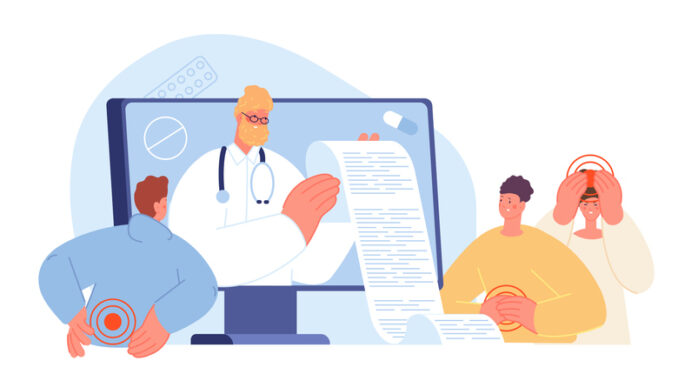
Guidance for GP practices on issuing fit notes to patients to declare they are not fit to work
Temporary change to fit notes
In relation to statutory sick pay, where employees go off sick on or after 10 December 2021, employers can only ask them for proof of sickness (such as a fit note) after 28 days of sickness (including non-working days). Proof of sickness cannot be requested earlier than 28 days.
Fit notes do not have to be provided for DWP benefit claims until 27 January. This will not affect claims to benefit. These changes are intended to give GPs more time to work on the booster programme.
The role of general practitioners
All GPs are able to provide simple fitness for work advice to their patients to help them return to work and aid their recovery. It is then up to your patient and their employer to discuss your advice and consider possible changes. There is a general consensus that GPs and other healthcare professionals should:
- play a key role in advising patients about work and return to work;
- agree that work, and return to work, is an important health outcome for clinical management;
- facilitate return to work through shared decision-making;
- enable patients to effectively communicate with their employers.
Supporting clinical management
Work is now recognised as an important health outcome so GPs should:
- discuss fitness for work with their patients, where appropriate;
- consider if they may be fit for some work;
- complete all relevant sections of the fit note, in order to provide as much useful advice as possible to the patient and their employer;
- in particular, complete the comments box with advice on the functional effects of the patient’s health condition;
- consider their own training needs in relation to health and work, and build their knowledge of other support and resources.
Computer-generated fit notes
Fit notes can be handwritten or computer-generated and printed out. Computer-generated fit notes have the added benefits of:
- automatically completing certain parts of the fit note to save GPs having to fill them in each time they issue one;
- ensuring that advice is easy to read for both patients and employers;
- removing the need to re-write fit notes if duplicates are required, as other staff members can print out duplicate copies;
- enabling clinical management and fitness-for-work advice to be monitored together for patients with long-term conditions;
- improving the continuity of patient care generally – for example, if patients are seen by different GPs;
- allowing GPs to share knowledge and learning points with colleagues in their practices by carrying out appropriate internal audits.
What GPs need to do
- GPs do not need to issue a fit note for the first seven calendar days of a patient’s sickness absence. Patients can self-certify for this period.
- If they assess that the patient’s health affects their fitness for work, they should give them a fit note indicating they are not fit for work OR may be fit for work.
- GPs should note that they can backdate a fit note (in certain situations, parts of the fit note may need to include dates which are earlier than the date of the statement).
- If GPs are issuing a fit note based on an assessment conducted at an earlier date, they should enter the date of this earlier assessment in the ‘date of assessment’ field.
- If the patient’s condition has affected their function for some time without a previous fit note being issued, they must enter an estimated date that their function was affected from in the ‘this will be the case from’ field.
Information GPs should provide
- Fit notes should record the advice given to the patient, along with other factual information including an accurate diagnosis, except on the occasions when a doctor feels that it could be prejudicial to their patient’s wellbeing if the true diagnosis were given.
- The comments section on medical statements allows for additional comments about the disabling effects of the diagnosed condition, its treatment and prognosis.
- Generally, GPs should not speculate but should provide only factual information and should not certify something they are unable to verify.
- GPs are reminded that they might be asked to provide further information in such circumstances. If they think that a patient would benefit from the help or advice of a disability employment adviser, say so in the remarks section.
More information on fit notes is available here.

Be the first to comment